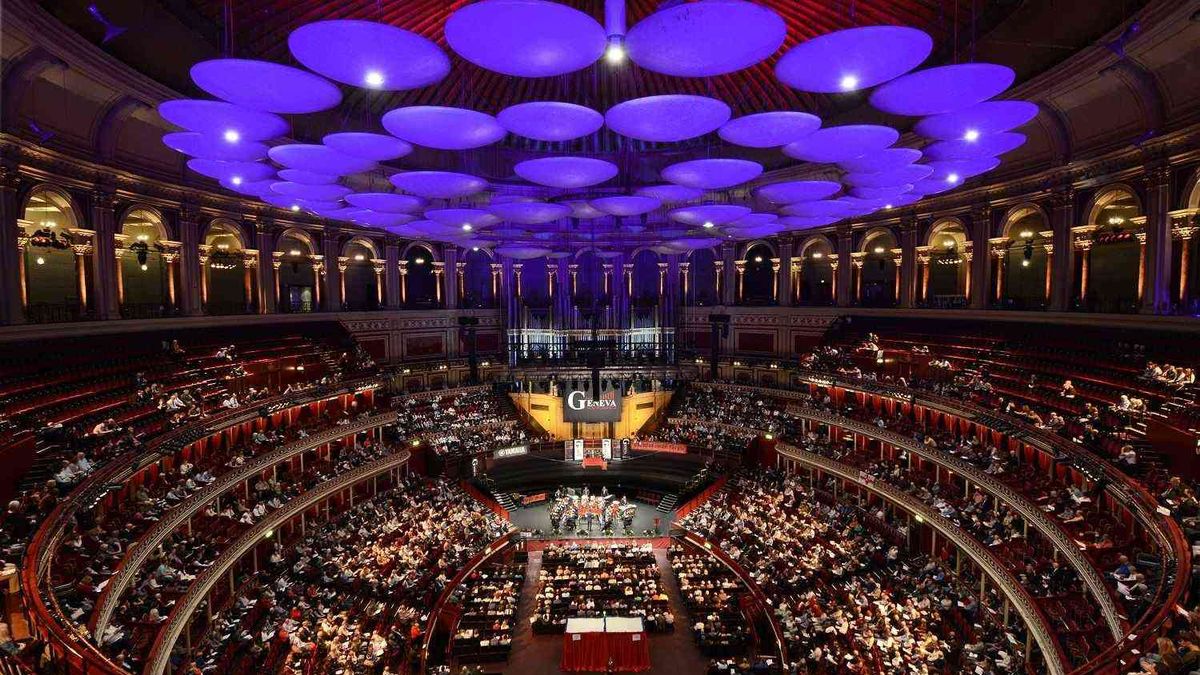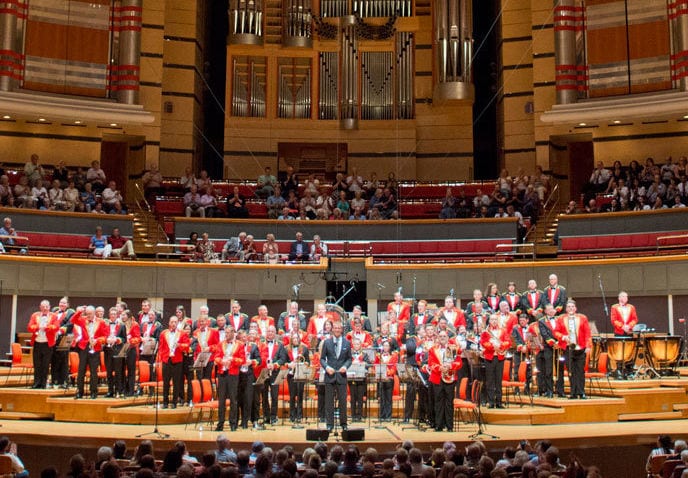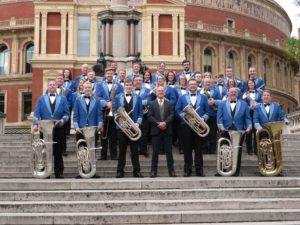Brass bands are a unique and important part of UK culture, with a rich historical and contemporary significance. Originating in the 19th century, brass bands were initially formed by industrial workers in the north of England, who came together to play music as a form of leisure and entertainment. Today, brass bands continue to play an important role in UK society, with a thriving competitive circuit, a strong tradition of school brass bands, and a commitment to innovation and adaptation.

The National Brass Band Finals in the Royal Albert Hall
One of the most significant events in the brass band calendar is the National Brass Band competition, which has been held annually since 1860. The competition is divided into different sections based on skill level, with bands competing against each other to be crowned the champion of their section. The competition is fiercely competitive, with bands from all over the UK vying for the title of National Champion. Notable past winners include Black Dyke Mills Band, Grimethorpe Colliery Band, and Cory Band.

Cory Band – Birmingham Symphony Hall
School brass bands also play an important role in the brass band world, providing opportunities for young musicians to develop their skills and showcase their talents. Many of the most successful brass bands in the UK have strong links to schools, with some schools producing multiple national champions over the years. For example, the Smithills School Brass Band in Bolton has won the National Youth Brass Band Championships of Great Britain on numerous occasions, and Wardle High School Brass Band has won the National Brass Band Championships of Great Britain a record-breaking six times.
Another significant achievement in the world of brass bands is the Double Double, which was first accomplished by Wingates Brass Band in 1906/07. The Double Double involves winning the National Brass Band Championships of Great Britain and the British Open Brass Band Championships in two consecutive years. This achievement is rare and highly coveted, with only Black Dyke also managing to accomplish it.

BRASS: Wingates Band will perform songs from the worlds of cinema and musical theatre
Despite their enduring popularity, brass bands in the UK face a number of challenges, particularly in the area of education. Budget cuts and a shortage of peripatetic instrumental teachers have made it more difficult for young musicians to access quality brass band tuition. However, the brass band community has responded to these challenges with innovation and creativity. Many bands are now collaborating with other artists and embracing new musical styles to engage younger audiences. Others are using technology to reach new audiences through online performances and recordings.
In conclusion, brass bands are a unique and important part of UK culture and society, with a rich history and a commitment to innovation and adaptation. From the National Brass Band competition to school brass bands, brass bands continue to play an important role in the UK music scene. Despite the challenges they face, the brass band community remains strong and committed to developing the next generation of musicians and ensuring the ongoing success of this important cultural tradition.

0 Comments